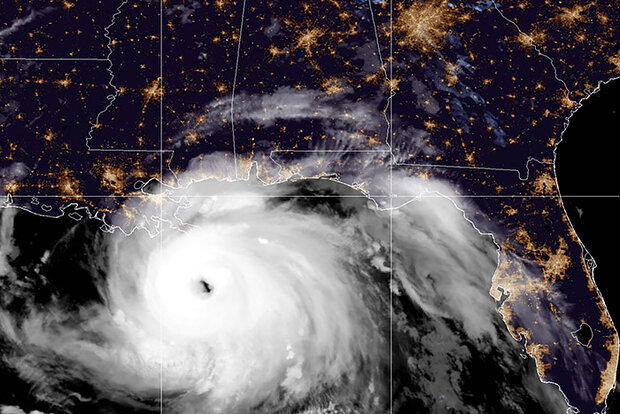Modeling and paleoclimate study links recent hurricane trends with internal climate variability

This nighttime image shows Hurricane Ida over the southeastern United States. Credit: NOAA GOES-16 (GOES East) satellite

This nighttime image shows Hurricane Ida over the southeastern United States. Credit: NOAA GOES-16 (GOES East) satellite
A new scientific study with support from the Climate Program Office’s Modeling, Analysis, Predictions, and Projections (MAPP) Program investigates the complex relationship between Atlantic hurricanes and climate change. Despite the heightened risk of hurricanes in a warming world, uncertainty in predicting their frequency persists due to a limited historical record. MAPP-funded scientist Gabriel Vecchi of Princeton University worked with a research team across six U.S. institutions to pioneer an extended examination of hurricane activity reaching back over a millennium. Astonishingly, the late 20th-century hurricane frequency aligns statistically with patterns seen over the past thousand years, challenging common assumptions about recent trends.
This study, published in Nature Communications, emphasizes the practical need to comprehend the climatic factors influencing hurricane variability and their response to climate change. By leveraging past climate proxies and SST-based models, the researchers unravel intricate relationships between internal climate variability, volcanic eruptions, and external forcings on hurricane activity over the last millennium.